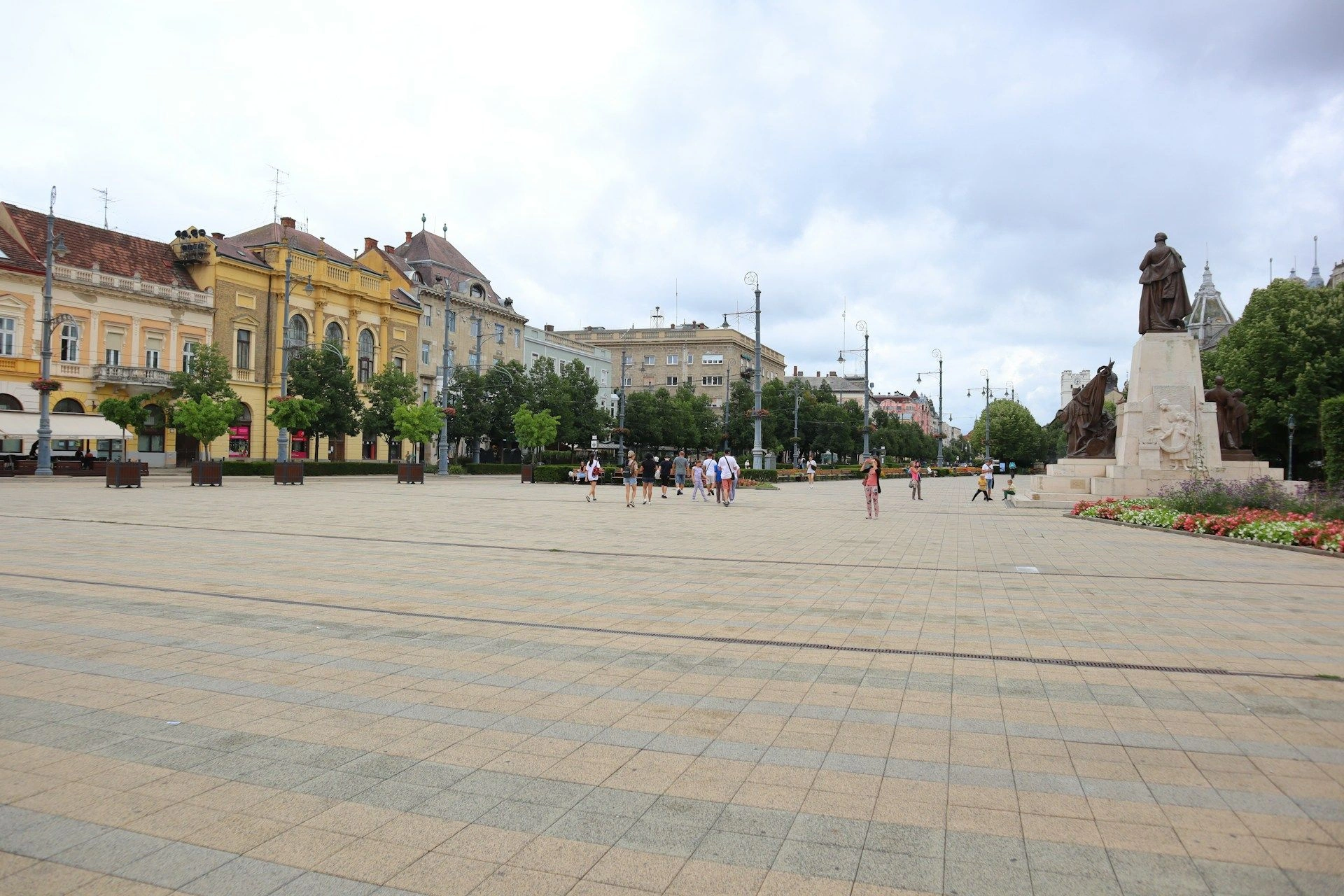Diversify Your Portfolio with Hungary Investment PropertiesCountry of hot bathsvineyards, timeless rhythm

Best offers
in Hungary
Benefits of investment in
Hungary real estate
Investment-grade EU capital
Budapest offers a mix of cultural charm, affordability, and strong tourist and student rental demand.
Steady cash flow from varied tenants
Medical tourism, universities, and business centers generate continuous rental interest.
Full ownership without restrictions
Foreign buyers enjoy direct, unrestricted ownership of residential property.
Investment-grade EU capital
Budapest offers a mix of cultural charm, affordability, and strong tourist and student rental demand.
Steady cash flow from varied tenants
Medical tourism, universities, and business centers generate continuous rental interest.
Full ownership without restrictions
Foreign buyers enjoy direct, unrestricted ownership of residential property.

Useful articles
and recommendations from experts
Investment Property in Hungary: Market Trends and Opportunities
Market trends and investment potential
Hungary has emerged as one of Central Europe’s most dynamic real estate markets, offering investors a combination of strong rental yields, affordable entry prices compared to Western Europe, and long-term capital appreciation potential. Known for its strategic location, rich cultural heritage, and growing economy, Hungary continues to attract both domestic and international investors.
Investment property in Hungary is concentrated in key urban centers, with Budapest leading the market as the country’s political, economic, and cultural capital. The city’s combination of historic architecture, thriving tourism, and modern infrastructure makes it a prime location for both residential and commercial investments. Secondary cities such as Debrecen, Szeged, and Pécs are also gaining attention due to their universities, growing industries, and improving infrastructure.
Real estate investment in Hungary benefits from the country’s steady economic growth, supported by diverse sectors such as manufacturing, IT, tourism, and logistics. Hungary’s membership in the European Union provides investors with additional stability and access to a large single market. The government’s ongoing infrastructure projects, including motorway expansions, railway upgrades, and urban renewal programs, are further enhancing property values and investor confidence.
The tourism sector is a significant driver of rental demand, particularly in Budapest, which consistently ranks among Europe’s top city destinations. The capital’s thermal baths, historic sites, vibrant nightlife, and year-round events attract millions of visitors annually, creating opportunities for short-term rental investors.
Types of investment properties
Hungary offers a diverse range of investment property types to suit different strategies. Residential apartments in central Budapest remain the most popular choice for investors seeking both long-term tenants and short-term rental income. Popular districts such as V, VI, and VII offer proximity to major attractions, business hubs, and transport links.
Mid-range apartments in suburban districts and secondary cities cater to local professionals, students, and families, offering stable occupancy rates and lower acquisition costs. These properties can yield competitive returns, especially in cities with strong university and industrial bases.
Commercial properties in Hungary include office buildings, retail units, and mixed-use developments. Budapest’s central business district and modern office parks attract multinational corporations, while retail demand is supported by shopping malls and high-footfall pedestrian streets.
Tourism-related properties are a growing investment category, with boutique hotels, serviced apartments, and guesthouses performing strongly in Budapest and regional tourist hubs like Lake Balaton and Eger. Investors targeting this segment benefit from high seasonal demand, with potential to adapt to medium-term rentals in off-peak months.
Industrial and logistics properties have also gained prominence due to Hungary’s role as a manufacturing and distribution hub in Central Europe. Facilities near Budapest, Győr, and Debrecen are in demand from both domestic companies and international logistics providers.
Legal framework for investors
Hungary’s property market is open to both domestic and foreign investors, though non-EU buyers must obtain approval from local authorities to purchase real estate. This process is generally straightforward with the assistance of a local lawyer. EU citizens face no such restrictions and can purchase property freely.
The purchase process involves signing a preliminary contract, paying a deposit, completing due diligence, and finalizing the sales contract before a notary or attorney. The property is then registered in the national land registry, which is secure and transparent.
Transaction costs are moderate compared to other European markets. Buyers should budget for a 4% transfer tax, legal fees, and minimal registration charges. There is no annual property tax for most residential properties, although rental income is subject to taxation at competitive rates.
Rental regulations in Hungary are landlord-friendly, with flexible lease terms and straightforward eviction procedures for non-paying tenants. This legal environment supports stable income generation and efficient property management.
Profitability and rental yields
Rental yields in Hungary vary by location and property type. In central Budapest, yields for residential apartments typically range from 4% to 6%, with short-term rentals achieving higher returns during peak tourist seasons. Secondary cities such as Debrecen and Szeged can offer yields of 6% to 8%, supported by lower purchase prices and strong local demand.
Commercial properties can generate yields between 6% and 8%, depending on location, tenant quality, and lease length. Industrial and logistics properties often achieve yields at the higher end of this range due to long-term contracts with established companies.
Capital appreciation potential is significant, particularly in areas undergoing redevelopment or infrastructure improvements. Budapest has seen steady price growth over the past decade, and regional cities are beginning to follow suit as investor interest spreads beyond the capital.
Investors considering how to invest in Hungary should balance yield expectations with the potential for long-term value growth, focusing on properties with strong location fundamentals and diversified tenant bases.
Challenges and risk management
While Hungary offers many advantages, investors should be aware of certain challenges. Market transparency has improved but can still vary by region, making thorough due diligence essential. Working with experienced local agents and legal advisors can help mitigate risks.
Currency risk is another consideration, as the Hungarian forint can experience fluctuations against major currencies. Investors from outside the eurozone should account for exchange rate movements when planning returns and financing strategies.
Short-term rental regulations in Budapest have tightened in recent years, with some districts requiring permits or imposing restrictions on rental periods. Investors in the tourism segment should monitor regulatory changes and consider diversified rental strategies.
Economic conditions in the broader EU can influence Hungary’s property market, so maintaining a long-term investment horizon and diversifying across asset types and locations can help reduce exposure to market volatility.
How VelesClub Int. supports investors
VelesClub Int. offers comprehensive services for investors entering the Hungarian property market. Our expertise includes market analysis, property sourcing, legal assistance, and transaction management, ensuring a smooth and secure investment process from start to finish.
We help clients identify investment property in Hungary that matches their financial goals, whether targeting high rental yields in Budapest, capital appreciation in emerging cities, or industrial assets for long-term stability. Our network of local partners provides access to exclusive opportunities and off-market deals.
For investors seeking rental yields in Hungary, we provide property management solutions covering marketing, tenant selection, lease administration, and maintenance. These services maximize occupancy rates and protect asset value over time.
Whether your focus is on how to invest in Hungary for residential, commercial, or tourism-based returns, VelesClub Int. delivers tailored strategies backed by local expertise and global investment experience, ensuring success in Central Europe’s dynamic real estate market.







